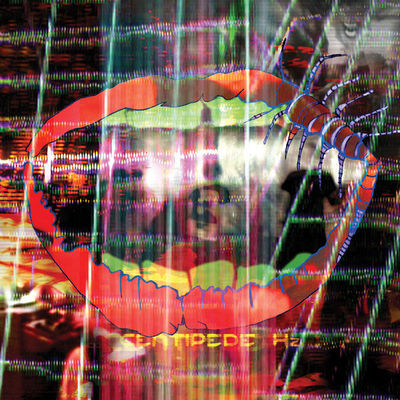Music
Animal Collective look back to their freak folk days with Centipede Hz

Centipede Hz
Animal Collective
Release Date: Sep 04, 12
- 1
- 2
- 3
- 4
- 5
- 6
- 7
- 8
- 9
- 10
Samplers and sequencers have been the instruments that have easily had the biggest impact on music in the past 15 years. They’re most definitively associated with hip-hop and various forms of electronic music, but they’ve also gravitated their way heavily into many circles of independent rock music. Most notably, these computerized instruments seemed to have touched eclectically experimental bands like Black Dice, Negativland, and perhaps most famously, Passion Pit. Yet at the same time, none of these bands are too alike for there to be a specific scene built around each one. Oddly enough, there is really only one band, similar or dissimilar to the aforementioned, who always tends to get the nod towards catapulting rock music forward with these instruments. That band is Animal Collective.
Animal Collective’s last album Merriweather Post Pavilion was a surprise success that influenced three years-worth of musicians who took similar, yet less exciting pieces of the band’s landmark album. Now, as a very successful art pop band, they’re on their eighth album, invite former member Deakin out of sabbatical, and write an album that may lose newer fans, yet win back former fans of their freak folk days. Centipede Hz is a challenging listen with inconsistent choruses, culture jamming samples, noise-y sequences, and a heavy-load of Avey Tare-singing; yet it’s the perfect album that encapsulates the entry into the second decade of one of independent music’s most interesting bands.
The album’s first song “Moonjock,” is one of the album’s noisiest, as well as catchiest. It’s a big song, with heavy drums, and dizzying samples that opens with musique concrete-type of radio sound bites. Halfway through the five minute track, the song changes into a very Strawberry Jam-like alien jam, and has the first easily heard guitar for the band since their 2005 album Feels. The next two tracks “Today’s Supernatural” and “Rosie Oh” aren’t nearly as exciting, but fit right where they’re placed. “Today’s Supernatural” is somewhat of a romantic song, and “Rosie Oh” is one of the few Panda Bear tracks, and features more culture jamming than the first two.
“Applesauce” is one of the best songs on the album, and contrastedly has more tranquility in its jungle-like environment. “Wide Eyed” and “Father Time” are a little less exciting, and more mellow, but serve the proper purpose of furthering down odd territory. Most interestingly, on “Wide Eyed,” features the first lead vocals of Deakin, and he proves to have just as confident of vocals as Avey Tare and Panda Bear. Speaking of Panda Bear, “New Town Burnout,” is next, and it’s one of his most interesting songs since Merriweather Post Pavilion. The song has a similar jungle beat to “Applesauce,” and shows the first sign of Panda Bear returning to his trademark Beach-y croon.
The tail-end of the album is the oddest, yet doesn’t fall off or drag. “Monkey Riches” has the potential to be a very exciting live track, and while “Mercury Man,” may not be one of AC’s better songs, in its last minute, it has chaotic noise samples that would easily make noise-provocateurs like Dan Deacon and Eric Copeland jealous. “Pulleys” follows, and has very terrific guitar riffs from Deakin. The song is bright, and has brilliant vocal dubs in its half-chorus. Lastly, we have one of the best songs on the album, the closer “Amanita.” “Amanita” instantly reminds one of Onra’s masterful hip-hop sample series Chinoiseries as it has a very traditional Chinese folk ambiance to it. And though Avey Tare’s vocals are in the front again, Panda Bear boasts terrific trademark vocals that were a huge part of the band’s previous album.
In eleven tracks, sitting a little under an hour, Centipede Hz fits perfectly with the rest of Animal Collective’s discography, and for anyone that was a fan of the band during the glory days (arguably between 2005-late-2009,) this album’s sure to be just as much of a pleasure. For anyone that calls this album “too strange” or “inaccessible,” clearly has never listened to many of the band’s albums. “Strange” and “inaccessibility,” is what this band does, and yet they do it well enough to ironically sell a lot of albums. The album’s closer “Amanita” may be a slight reference to the difficulties of the band members’ each living in four different cities with closing lyrics of “What art thou gonna do?/Go into the forest until I can’t remember my name.” But when the band reunites, brilliant and progressive things happen, and Avey Tare’s warbled vocals respond with “I’m gonna come back and things will be different/I’m gonna bring back some stories and games”; some hope that despite the band being miles apart, they can pick up and add more exciting music to their list of accomplishments